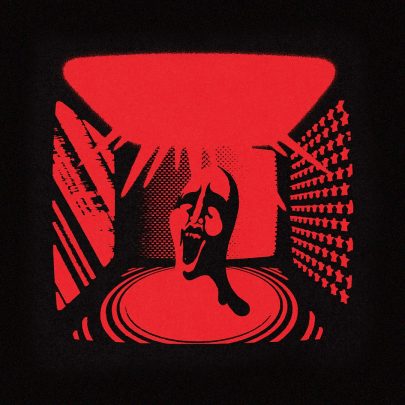Oct 16, 2015 Film & TV
Read Frances Morton’s interview with Ramin Bahrani.
In the next scene we meet innocent, well-meaning Dennis Nash, builder and all-round handyman. We know he’s an innocent, because he’s played by Andrew Garfield, whose sweet face, as in most of his films, is a reliable index of his character’s soul. This is a taut, propulsive fusion of thriller, real estate procedural and morality tale, with Dennis as our protagonist and chief object of sympathy, but it’s worth noting the detail that Carver enters the film first. From that slam-dunk opening right through to the final seconds, he’s by far the most compelling personality on the screen.
With the housing sector in chaos, no one is hiring builders. In short order, Dennis finds himself out of work and out on the streets: thrown out of his repossessed home by Carver, who turns up on his doorstep one morning with a couple of sheriffs, a court order, and not an ounce of warmth.
Dennis is the chief provider for a three-generation house-hold that includes both his mother and his young son. Desperate, he takes the only job he can get. Which turns out to be with Carver, fixing up recently vacated houses, and, before long, helping with the evictions. Part of the strength of Bahrani’s screenplay is that Carver’s evict-and-onsell business, which we experience initially as a tsunami crashing down Dennis’s front door and ruining his life in the space of minutes, turns out to follow its own fascinating logic.
So we can enjoy seeing Dennis master it, piece by piece, even as, piece by piece, Carver chips away at his innocence.
The obvious comparison is with Oliver Stone’s Wall Street; Carver even gets his own version of the famous Gordon Gecko “Greed is good” speech. The films share a certain tub-thumping lack of subtlety, and also the age-old problem that comes with creating a really strong villain: Bahrani’s evident disgust at the excesses of the real estate sector seems slightly undermined by his equally evident fascination with Carver.
But it’s hard to complain, because the film is so tightly constructed, and Shannon makes Carver genuinely fascinating. He’s a pure zeitgeist figure, the very essence of a real estate shark sensing blood in the water. He’s bottled lightning. Whether or not you’ve tried to buy a house in Auckland lately — but especially if you have — he’s a devil worth going out of your way to meet.





